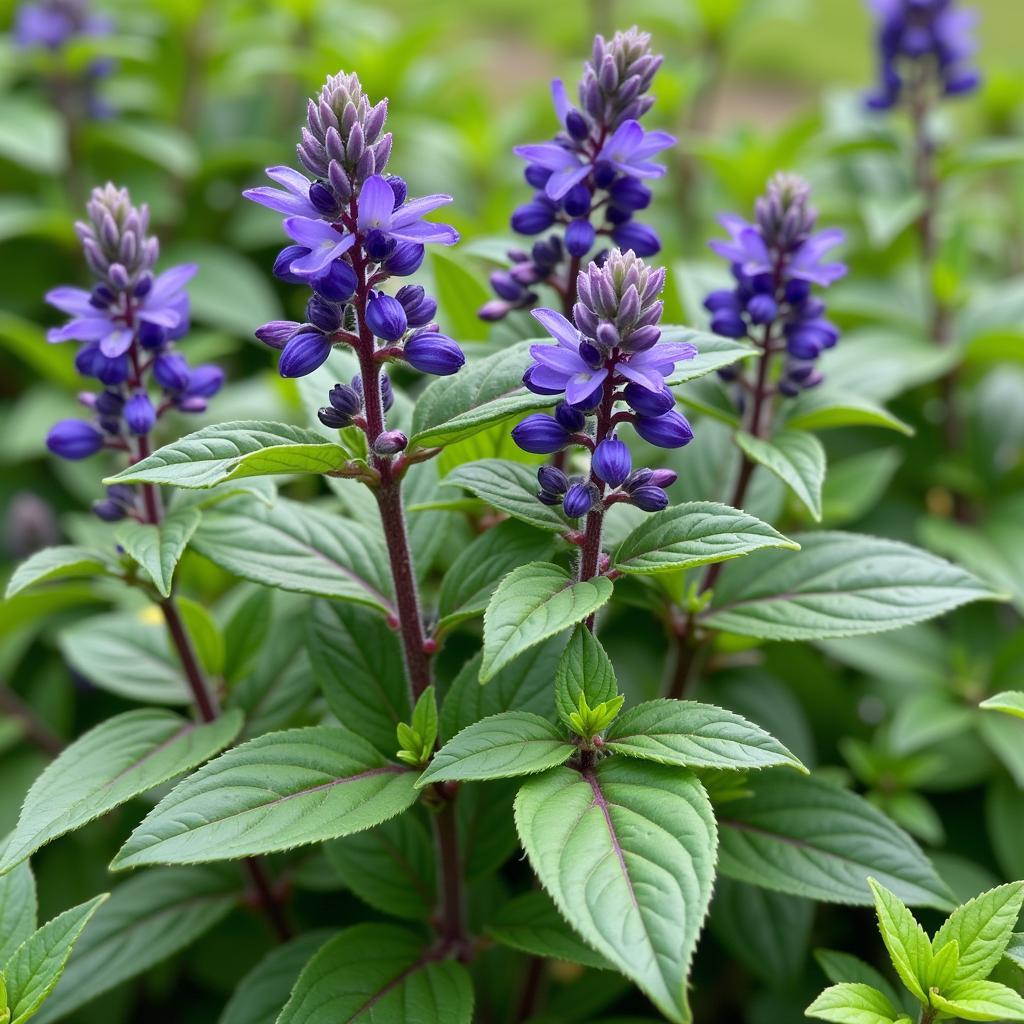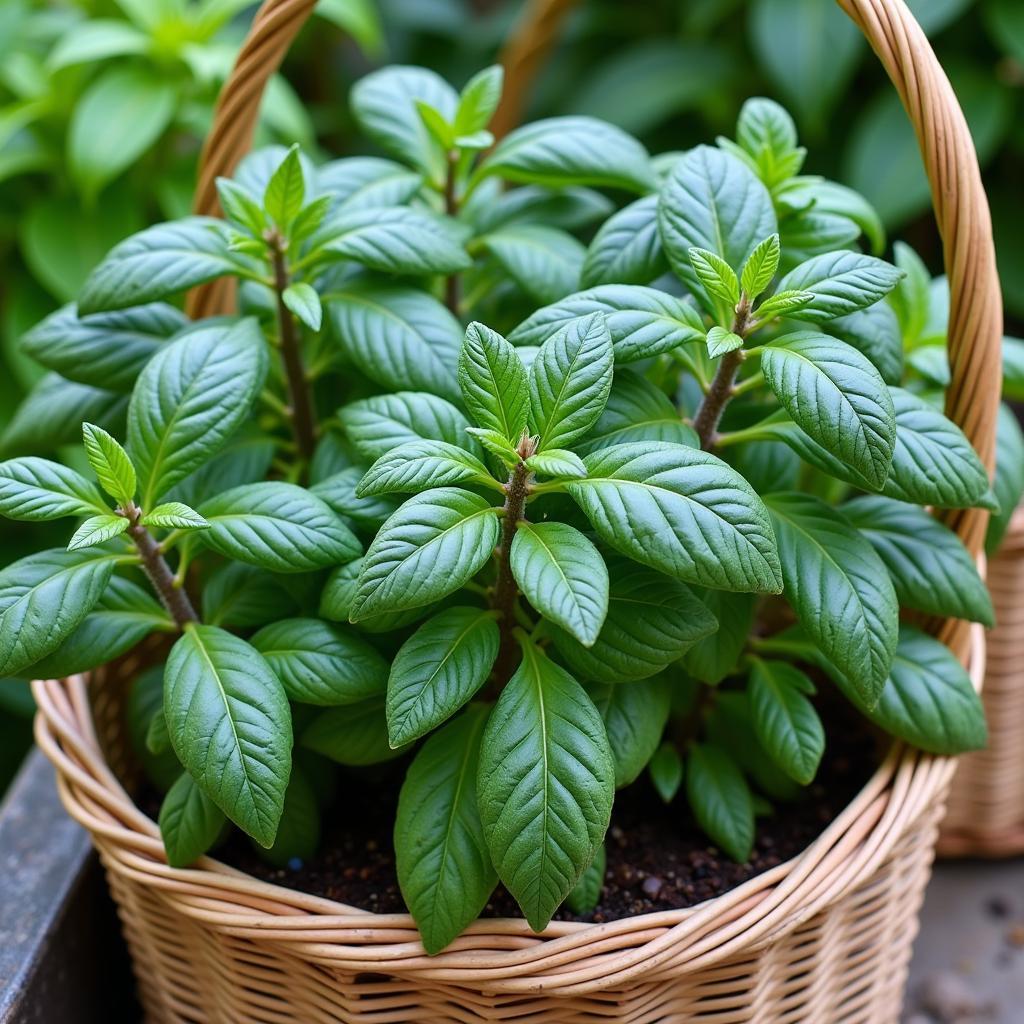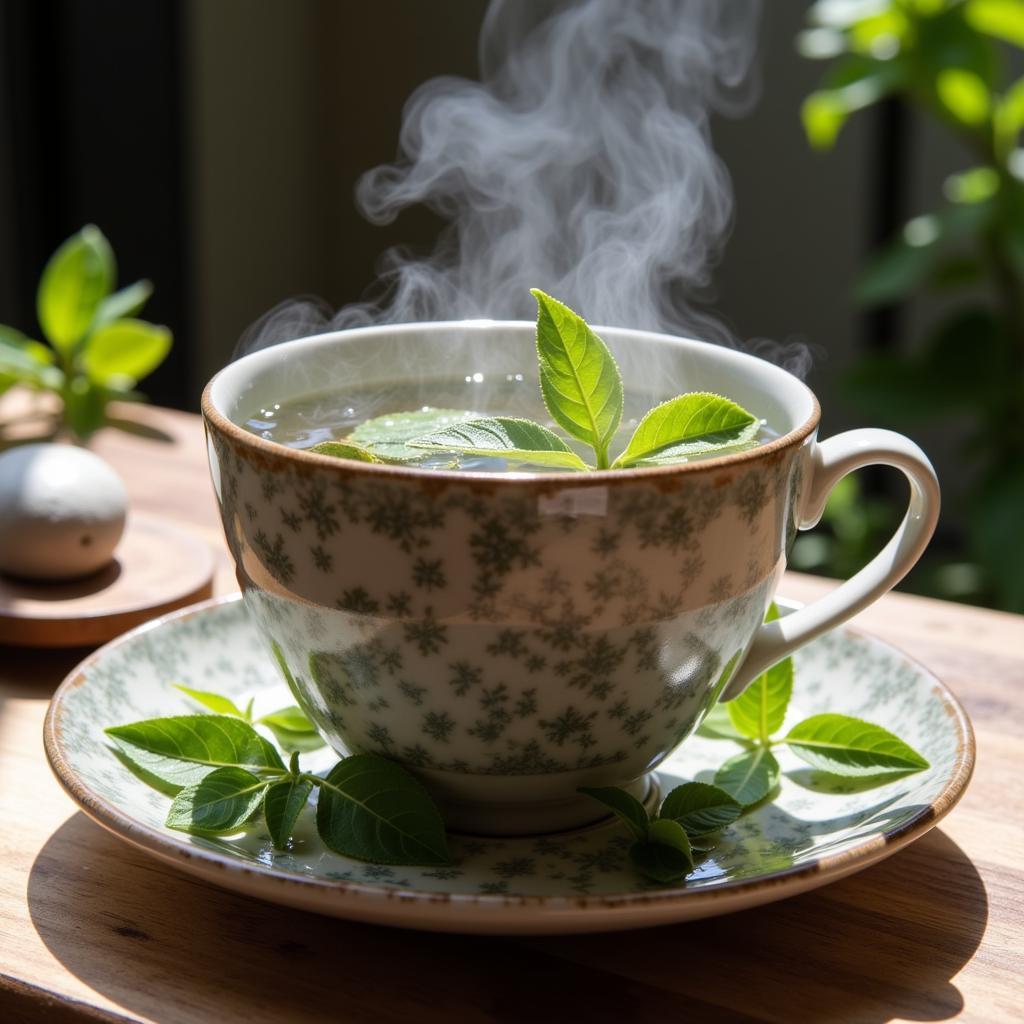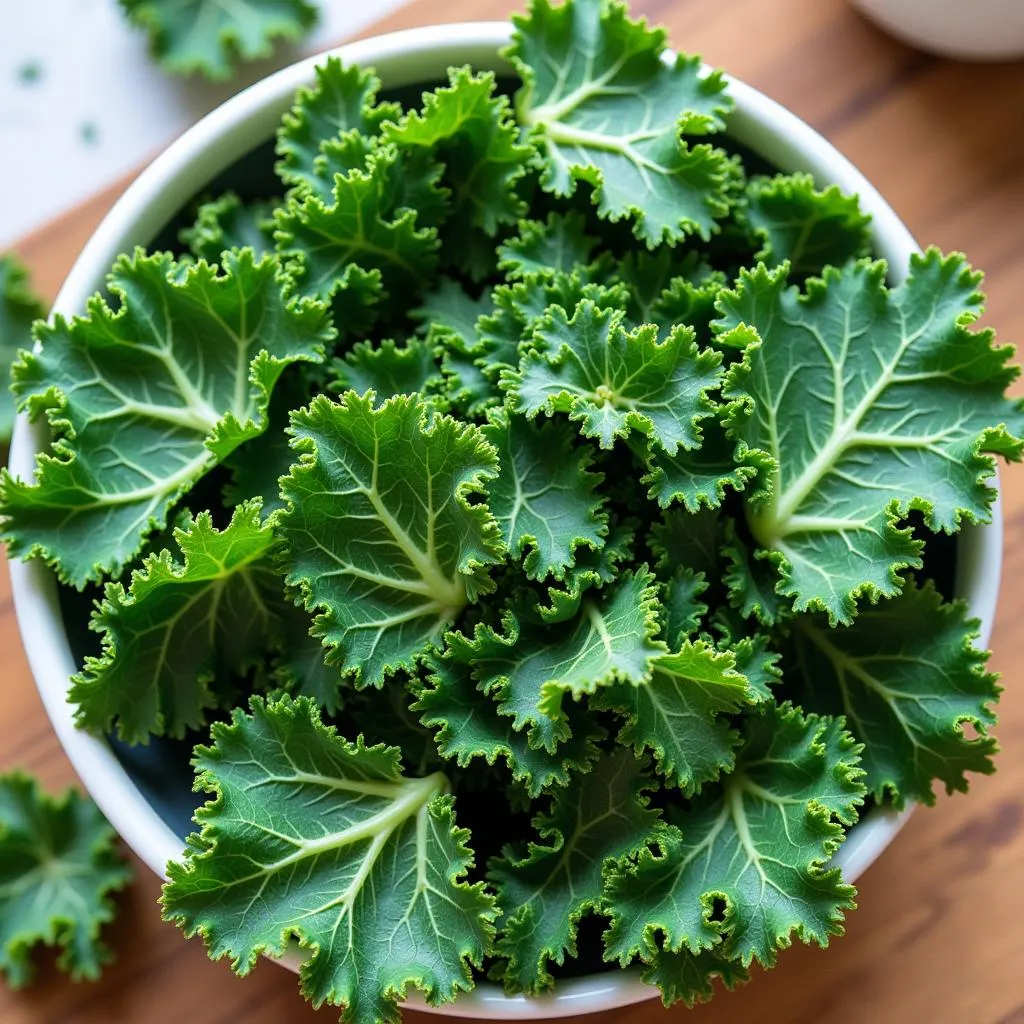Discovering the Aromatic World of African Blue Basil Varieties
African blue basil, a captivating herb with vibrant violet hues and a powerful aroma, holds a cherished place in gardens and kitchens across the globe. Native to the eastern regions of Africa, this basil variety boasts a unique flavor profile that sets it apart from its more common green counterparts.
 Close-up of African blue basil plant
Close-up of African blue basil plant
Unveiling the Enchanting Characteristics of African Blue Basil
This captivating basil variety is renowned for its intoxicating fragrance, a delightful fusion of traditional sweet basil with a hint of camphor and a subtle spiciness. The leaves, tinged with shades of green and purple, add a visual feast to any culinary creation. Beyond its aesthetic and aromatic allure, African blue basil possesses an array of culinary and medicinal applications.
A Culinary Journey with African Blue Basil
African blue basil’s unique flavor profile makes it a versatile ingredient in a myriad of dishes. Its pungent aroma and slightly spicy undertones add depth and complexity to both raw and cooked preparations.
Savory Sensations
- Vibrant Salads: The leaves, with their captivating color and intense flavor, add a refreshing twist to salads.
- Flavorful Pesto: African blue basil pesto, with its vibrant hue and complex taste, elevates pasta dishes to new heights.
- Aromatic Stir-fries: A handful of fresh leaves added towards the end of cooking infuses stir-fries with a burst of flavor.
- Savory Soups and Stews: The herb’s robust flavor profile holds its own in hearty soups and stews, adding depth and complexity.
 Freshly harvested African blue basil leaves in a woven basket
Freshly harvested African blue basil leaves in a woven basket
Refreshing Beverages
- Infused Waters and Teas: Steep a few leaves in hot or cold water for a revitalizing drink that is both flavorful and aromatic.
- Exotic Cocktails: Muddle the leaves with other ingredients to create unique and refreshing cocktails.
Cultivating Your Own African Blue Basil Haven
Growing African blue basil is a rewarding experience, allowing you to enjoy the herb’s fresh, vibrant flavor right from your garden.
Planting and Care:
- Sunlight: African blue basil thrives in warm climates and requires at least six hours of sunlight daily.
- Soil: Well-drained soil is crucial for healthy growth.
- Watering: Water regularly, keeping the soil moist but not soggy.
- Fertilizer: Use a balanced fertilizer every few weeks to encourage optimal growth.
Harvesting:
Harvest the leaves regularly by pinching off the top sets of leaves, promoting bushier growth and a continuous supply of fresh basil.
Exploring the Medicinal Benefits of African Blue Basil
Beyond its culinary uses, African blue basil is believed to possess various medicinal properties. While scientific research is ongoing, traditional medicine practices have long utilized this herb for its potential health benefits.
 A steaming cup of African blue basil tea with fresh leaves
A steaming cup of African blue basil tea with fresh leaves
Traditional Uses:
- Digestive Aid: The herb is thought to soothe digestive discomfort and promote healthy digestion.
- Anti-inflammatory Properties: Some believe African blue basil may help reduce inflammation in the body.
- Antioxidant Powerhouse: The herb’s vibrant color hints at its rich antioxidant content, potentially protecting cells from damage.
Conclusion
African blue basil, with its captivating aroma, vibrant color, and culinary versatility, is an herb worthy of exploration. Whether gracing your garden, enhancing your dishes, or potentially offering health benefits, this unique basil variety promises a sensory and flavorful adventure. Embrace the allure of African blue basil and discover its enchanting qualities for yourself.
FAQs
- What is the difference between African blue basil and regular basil?
African blue basil has a more pungent aroma and a slightly spicy flavor compared to the sweeter taste of regular basil. It also boasts distinctive purple hues. - Can I grow African blue basil indoors?
Yes, African blue basil can be grown indoors with ample sunlight and proper care. - Is African blue basil a perennial herb?
In warmer climates, African blue basil can grow as a perennial. However, in cooler regions, it’s treated as an annual.
Need More Information?
For further inquiries or assistance, please don’t hesitate to contact us:
Phone: +255768904061
Email: kaka.mag@gmail.com
Address: Mbarali DC Mawindi, Kangaga, Tanzania
Our dedicated customer support team is available 24/7 to answer your questions.


